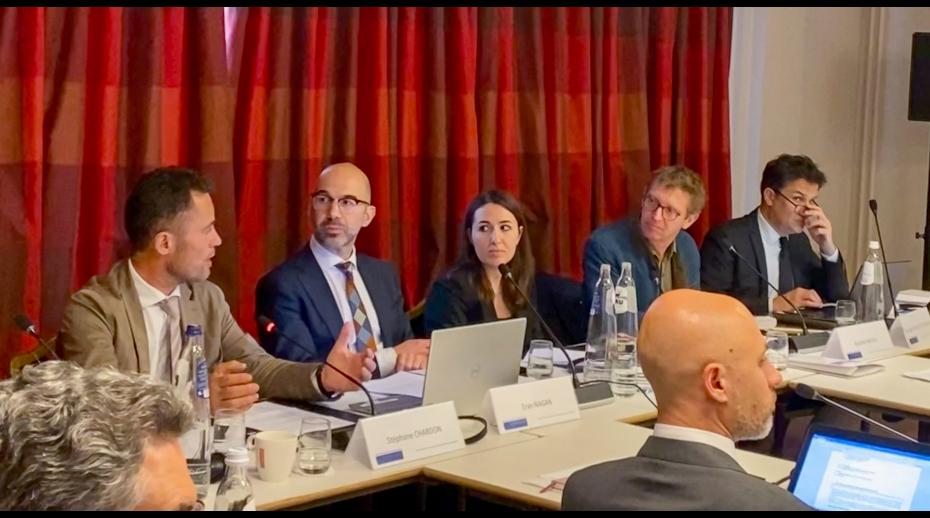
On 16–17 May 2022 SIPRI actively participated in an ad hoc seminar on ‘War in Ukraine: The Impact on the International Security Architecture—Non-proliferation, Disarmament, Arms Control, Export Controls’. The seminar was held in Brussels in a hybrid format and was organized by the Foundation for Strategic Research (FRS) on behalf of the EU Non-Proliferation and Disarmament Consortium (EUNPDC).
The aim of the seminar was to bring together European experts, European Union (EU) officials and representatives of EU member states to share initial reflections on the impact of the war in Ukraine on European security, specifically in relation to non-proliferation, disarmament and arms control. Giovanna Maletta, Researcher in the SIPRI Dual-use and Arms Trade Control Programme, was a speaker on a panel on ‘The EU, Export Controls and Sanctions’. Dr Sibylle Bauer, Chair of the Consortium and Director of Studies for Armament and Disarmament at SIPRI, moderated a session on ‘European and International Security Architecture: First Reflections’.
About the EU Non-Proliferation and Disarmament Consortium
The EUNPDC forms the core of a wider European network of non-proliferation and disarmament think tanks that the Consortium is responsible for promoting and coordinating. The EUNPDC is managed jointly by six institutes: the Foundation for Strategic Research (FRS), the Peace Research Institute Frankfurt (HSFK/ PRIF), the International Affairs Institute in Rome (IAI), the International Institute for Strategic Studies (IISS), the Vienna Center for Disarmament and Non-Proliferation (VCDNP) and SIPRI.
The EUNPDC aims to encourage discussion of measures to combat the proliferation of weapons of mass destruction and their delivery systems within civil society, particularly among experts, researchers and academics in the EU and third countries. The scope of activities also covers issues related to conventional weapons, including small arms and light weapons. For more information about the Consortium click here.